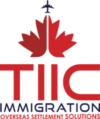
If you follow Canada Immigration news, you might be aware that Prime Minister Justin Trudeau and Immigration Minister Marc Miller’s recent announcements signal significant changes that could affect both temporary workers and permanent residents.
Major Changes to the Temporary Foreign Worker Program
Effective September 26, 2024, the Canadian government will implement stricter rules for the Temporary Foreign Worker Program:
- 1. Applications for low-wage temporary foreign workers will be refused in regions with unemployment rates of 6% or higher.
- 2. Employers can now hire a maximum of 10% of their workforce from the program, down from the previous 20%.
- 3. Workers in the low-wage stream will be limited to a maximum work duration of one year, reduced from two years.
- 4. Exceptions will apply for specific sectors such as healthcare and construction.
These changes aim to encourage Canadian businesses to prioritize hiring and training local workers, as well as investing in technology and innovation.
Potential Reductions in Permanent Residency Targets
The Canadian government is also considering lowering its annual targets for permanent residents. Currently, Canada plans to welcome 500,000 permanent residents in both 2025 and 2026, up from 485,000 in 2024. However, these numbers may be adjusted downward in response to domestic economic conditions and public sentiment.
Reasons Behind the Policy Shift
Several factors have contributed to this change in approach:
- – Economic changes since the post-pandemic recovery
- – Rising unemployment rates (6.4% as of July 2024)
- – Concerns about housing affordability linked to population growth
- – Criticism that relaxed immigration rules were suppressing wages and discouraging innovation
- – Significant increase in temporary foreign worker permits (88% rise from 2019 to 2023)
Historical Context and Future Plans
The Liberal government initially loosened rules on temporary foreign workers to help businesses recover from pandemic-related labor shortages. In 2022, Canada had about one million job vacancies and a record-low unemployment rate of 4.9%. However, job vacancies have since decreased significantly.
Looking ahead, the government plans to:
- – Include targets for both temporary and permanent residents in its fall 2024 immigration plan
- – Aim to decrease the share of temporary residents from the current 6.8% to 5% of the population over the next three years
- – Consider changes to the high-wage stream of the Temporary Foreign Worker Program
Impact on Aspiring Immigrants
These policy changes underscore the importance of:
- 1. Staying informed about regional unemployment rates and in-demand skills
- 2. Focusing on high-skilled occupations that may be less affected by these restrictions
- 3. Exploring alternative immigration pathways, such as provincial nominee programs or express entry
- 4. Enhancing qualifications and language skills to remain competitive
How Taaz Immigration Can Help
At TIIC – Taaz International Immigration Consultancy, we understand that these policy changes may seem daunting. Our team of experienced Immigration Consultants in Chandigarh is here to guide you through the evolving landscape of Canadian immigration. We offer:
- – Up-to-date advice on the most suitable immigration pathways
- – Assistance in evaluating your eligibility under the new rules
- – Support in enhancing your application to stand out in a more competitive environment
- – Guidance on alternative options if you’re affected by the new restrictions
While the immigration landscape is changing, opportunities still exist for skilled individuals looking to build a future in Canada. The government’s message is clear: there is a shift towards prioritizing Canadian workers and addressing domestic economic concerns. However, with the right preparation and guidance, aspiring immigrants can still achieve their Canadian dreams.
Let TIIC – Taaz International Immigration Consultancy be your partner, making immigration more accessible for you. Contact us today for a personalized consultation and take the first step towards your Canadian immigration journey.









